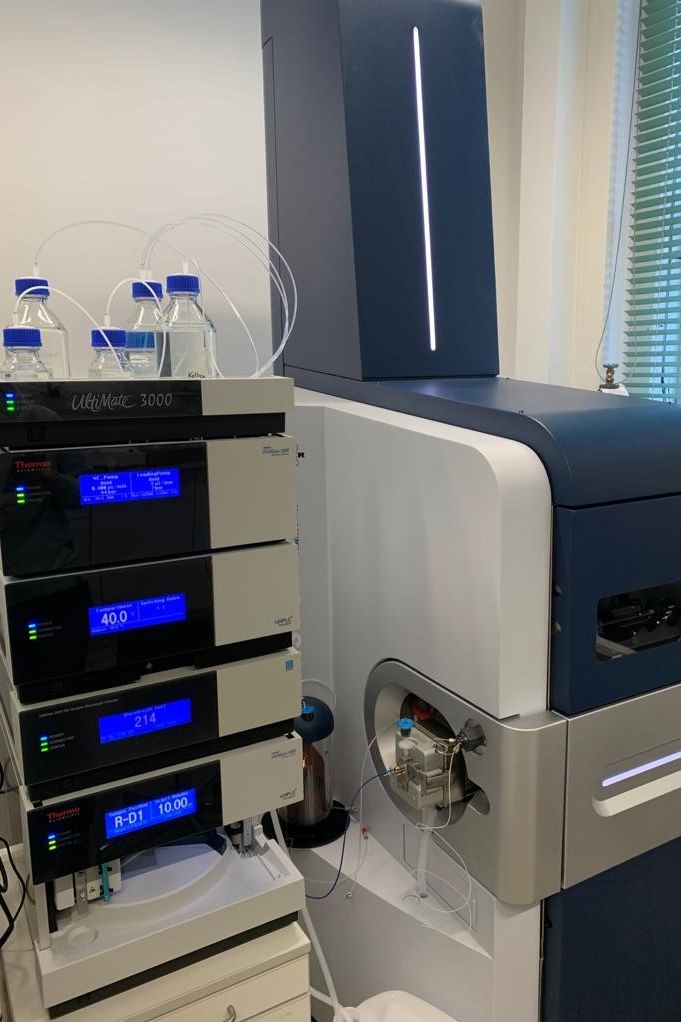
(Vienna, 03 June 2020) Medulloblastoma is the commonest type of malignant brain tumour in children. Although initial treatment is often successful, it is relatively common for the tumour to recur and it is then often impossible to control, despite intensive cancer treatment. Using comprehensive molecular analysis of the cerebrospinal fluid, chemists and doctors led by Christopher Gerner from the University of Vienna have obtained important information about the aggressiveness of medulloblastoma, thereby identifying new treatment approaches. Their multiomics study appeared in the open access journal “Cancers MDPI".
Over the course of the last few years, researchers have managed to identify the genetic characteristics of the embryonal tumour to a significant extent. For example, they have found that there are various subtypes of the tumour, each requiring different treatment. Up until now, little has been known about the potential influence of the immediate environment of the tumour (genetically normal cells in the tumour microenvironment) on the disease and its development. It is not really possible to determine the aggressive nature of the tumour from its genetic characteristics.
"Our aim is to use a multiomics approach – that is to say a combined data analysis of the protein, metabolic and lipid balance – to investigate the tumour-promoting microenvironment, in order to identify and understand influences on and interactions with the tumour," says Christopher Gerner, Professor of Analytical Chemistry at the University of Vienna and Head of the Joint Metabolome Facility, operated jointly with the Medical University of Vienna.
Recurrent tumour
"Medulloblastoma presents us with huge clinical challenges on a daily basis," says neuro-oncologist Andreas Peyrl from the Medical University of Vienna: "We have established an antiangiogenic therapy for recurrent medulloblastoma and are leading the MEMMAT study, an international Phase II study, but we are urgently looking for better treatment strategies."
Although it was already assumed that macrophages have a tumour-promoting effect, it was only by means of the recent analyses that researchers were able to describe a molecular vicious circle, which better explains the clinical observations.
Combined multiomics analysis
In a joint initiative with Wofgang Buchberger from Johannes Kepler University Linz, the very latest mass-spectrometry techniques were used to gather and amalgamate proteomics, metabolomics and lipidomics datasets. As well as identifying characteristic tumour markers, it was also found that tumour-associated macrophages form directly tumour-promoting proteins and produce additional lipid hormones, which in turn modify the metabolism in a tumour-promoting way. This can therefore create a microenvironment that directly promotes the formation of treatment-resistant cancer cells.
"Using our multiomics approach, we have managed to discover a highly efficient pathomechanism in medulloblastoma, which can arise independently of the genetic characteristics of the tumour cells and which will enable us to develop completely new treatment strategies," says Christopher Gerner from the University of Vienna's Faculty of Chemistry. The study also demonstrates the potential of the very latest post-genomic analytical strategies to improve our molecular understanding of cancers. This year, using the same approach, researchers have already identified a new mechanism for the formation of malignant metastases in ovarian cancer.
Service
Determination of a tumor-promoting microenvironment in recurrent medulloblastoma: a multi-omics study of cerebrospinal fluid, Bernd Reichl, Laura Niederstaetter, Thomas Boegl, Benjamin Neuditschko, Andrea Bileck, Johannes Gojo, Wolfgang Buchberger, Andreas Peyrl, Christopher Gerner, in: Cancers MDPI, Open Access Journal, https://doi.org/10.3390/cancers12061350